“My role is to ensure that every child and young person in Scotland gets the best education and the same opportunity to succeed, irrespective of their background.”— John Swinney
Prior to his election as Westminster MP for North Tayside in 1997, John Swinney held a number of posts in the Scottish National Party (SNP) at local and national level. In 1999, he became Member of the Scottish Parliament (MSP) for Tayside North, remaining as the constituency’s MP until standing down from Westminster at the 2001 General Election. From 1998 to 2000, he served as deputy leader of the SNP, and then as party leader between 2000 and 2004. He was re-elected as an MSP at the 2011 Scottish Parliament election and appointed Cabinet Secretary for Finance and Sustainable Growth. He was appointed as Deputy First Minister and Cabinet Secretary for Finance, Constitution & Economy in November 2014. In May 2016, he was appointed as Deputy First Minister and Cabinet Secretary for Education and Skills.
The Global Search for Education welcomes John Swinney.
John, what are the key initiatives of the education ministry at present? How do they reflect an altered vision for education for the next decade or beyond?
My overarching ambition is to get it right for every child. I am committed to ensuring that every young person in Scotland is supported throughout their early life to meet their full potential. I will achieve this by presiding over policies that will have a positive and transformative impact throughout each person’s early years, school life and early adulthood.
For example, we will develop a high quality, flexible system of early learning and childcare that is affordable and accessible for all, and which delivers 1,140 hours per year of free childcare to all 3, 4 and eligible 2 year-olds by the end of this parliamentary term.
Through the actions I have outlined in my delivery plan, I will achieve excellence and equity across Scottish education and make substantial progress to close the gap in attainment between our least and most disadvantaged young people. Central to this is our work to empower teachers to make more decisions about how their schools are run; ensure schools are funded more fairly; address workload concerns and de-clutter guidance so teachers have more time in the classroom to teach. The Scottish Attainment Fund will provide an additional £750 million over five years to close the attainment gap by supporting schools to improve literacy, numeracy, and health and wellbeing in some of our most disadvantaged areas.
Through our youth employment strategy – Developing the Young Workforce – we will ensure our young people have access to skills development and motivational, work-related learning opportunities. These actions will ensure every child and young person in Scotland has access to a wide range of rich learning experiences that meet their individual needs and aspirations and prepare them for learning, life and work.
“I want Scottish education to become world-leading for all our children and young people. Through the transformation of education policy, I will interrupt the cycle where young people have been unable to fulfil their potential.” — John Swinney
What is the role of the Education Minister of Scotland? Does the Education Minister of Scotland determine what is taught in Scottish schools?
My role is to ensure that every child and young person in Scotland gets the best education and the same opportunity to succeed, irrespective of their background. We trust our teachers in Scotland. My role is to support and empower them, along with parents and communities, to deliver for our children and young people.
We have invested in the autonomy and professionalism of our teaching workforce. Our Curriculum for Excellence gives teachers the tools and flexibility they need to teach, and sets higher standards for achievement than ever before. As Education Secretary, I am committed to doing everything that I can to support and free up teachers to teach. I want Scottish education to become world-leading for all our children and young people. Through the transformation of education policy, I will interrupt the cycle where young people have been unable to fulfil their potential.
What kind of input do educators on the ground (teachers/principals) have in policy making? What kind of input do you think they should have?
I am committed to devolving more powers and funding to schools, and empowering teachers and head teachers to ensure that they are in the driving seat of school improvement in Scotland, supported by parents and children and young people themselves. That is why the School Governance Review I launched in September starts with the presumption that decisions about the way schools are run should be taken at school level.
We want to ensure that teachers, along with parents and wider communities, are empowered to support every child and young person, irrespective of their background, to fulfil their potential. This is an exciting opportunity to build upon the best in Scottish education and to improve in areas where we need to do better. Teachers are central to this and our governance review asks important questions about how teachers can be supported to work together more to ensure all children have the best opportunity to learn and succeed.
“In Scotland, they do not have to worry about tuition fees, and the quality of higher or further education is outstanding. We know that we have to do more to widen access to university for young people coming from the most disadvantaged areas.” — John Swinney
What kind of curriculum changes do you believe are essential for students to succeed in a future labor market? What kind of curriculum changes do you believe are essential for students to succeed in life generally?
We have undergone a significant period of curriculum reform in Scotland, at the heart of which is the importance of developing the skills, insights and confidence to respond to the challenges and opportunities of our modern world. The curriculum in Scotland recognises that learning begins at birth and continues throughout our lives. We have a pre-birth to three framework, 3-18 curriculum, and national guidance and frameworks which support adult learning and community learning and development. Together, these form the curriculum in Scotland, which is designed to help learners develop the skills they need for learning, life and work in an ever-changing world.
Curriculum for Excellence provides the framework for learning aged 3 to 18, and it is based around the development of four capacities – to enable each child or young person to be a successful learner, a confident individual, a responsible citizen and an effective contributor. Within a broad framework, teachers have the flexibility to deliver learning experiences tailored to the individual needs of learners. This framework includes all of the experiences that are planned for children and young people through their education across not only curriculum areas and subjects, but also in the development of skills, values and ensuring opportunities for personal achievement. All of this aims to ensure that all children and young people in Scotland develop the attributes, knowledge and skills they will need to succeed in learning, life and work.
Developing the Young Workforce is a key part of Curriculum for Excellence, bringing a focus on skills for work from 3 to 18. This long-term reform programme takes an integrated approach across education, training and employment. It supports collaboration between education and employers to broaden and improve the quality of opportunities available to young people to equip them with skills they need for the current and anticipated job market, including an expansion of vocational qualifications.
Knowledge is constantly changing. Learning is more about becoming a critical thinker. Skill sets such as collaboration, innovation and creativity are increasingly important. What steps are being taken to update and improve teaching skills and methods to accommodate a rapidly changing world?
Since the publication of the Teaching Scotland’s Future Report in 2011, we have been seeking to support teachers to become more reflective and enquiring while developing the capacity to lead educational change in a complex world. I am keen to continue this focus on teacher professionalism and am currently working with the university sector to develop new and innovative routes to teaching while we are continuing to invest in masters’ level learning for established teachers. We know that effective school leadership is crucial to the success of education systems, and in 2014, we established the Scottish College for Educational Leadership to ensure all teachers develop their leadership skills. This work has included the creation of a new qualification for headship designed to effectively prepare teachers to take on the vital role of head teacher in our schools.
“Through Developing the Young Workforce, we will create world class vocational education by broadening and improving the quality of what is on offer to young people, to produce more work-ready young people, with the skills relevant to current and anticipated job opportunities.” — John Swinney
What initiatives are helping ensure that high school graduates have the skills to enter local universities and succeed in the modern workplace?
It is hugely important that we equip all of our young people with the skills they need to succeed in the modern workplace. And it is crucial that we give all of our young people the opportunity to help them fulfil their potential, whether that is by going to university or college, going straight into work or undertaking a modern apprenticeship. The key is giving them the options to follow that will lead to success.
That is the basis of our innovative youth employment strategy, Developing the Young Workforce. It builds on the Curriculum for Excellence approach and seeks to give young people a wide range of learning experiences that meet their individual needs and aspirations and prepare them for learning, life and work. It fosters local partnership working between, for example, schools, colleges and employers to ensure that the education and training that is delivered can meet local workforce needs.
If a young person wants to go on to university or college, they have a huge amount of support open to them to allow that to happen. In Scotland, they do not have to worry about tuition fees, and the quality of higher or further education is outstanding. We know that we have to do more to widen access to university for young people coming from the most disadvantaged areas. Our Commission on Widening Access published its report earlier this year and we are committed to implementing its recommendations. Steered by a new Widening Access Commissioner, these will ensure that, by 2030, students from the 20 per cent most deprived areas make up 20 per cent of higher education entrants.
How can we make sure today’s youth grow up more globally competent than previous generations?
Our economic success will depend on a number of factors including our employability skills and global outlook. We are taking an integrated approach across education, training, employment to reduce youth unemployment by 40 per cent by 2021 and tackle inequality by developing our young workforce and enabling them with the skills to transition through employment and to meet market demand.
Through Developing the Young Workforce, we will create world class vocational education by broadening and improving the quality of what is on offer to young people, to produce more work-ready young people, with the skills relevant to current and anticipated job opportunities.
Having skills in languages other than your own can contribute to developing global competence. It is not just the language itself – it is about an openness to other people and their cultures, a willingness to engage and communicate effectively with different people from different backgrounds. Many companies view language skills as a proxy for soft skills like communication, empathy and ability to get along with people.
That is why the Scottish Government is continuing to support and promote the 1+2 languages policy. This is about ensuring every pupil in Scotland learns one additional language from the start of primary school onwards and a second language from Primary 5 onwards. This entitlement should continue throughout a young person’s broad general education, and the expectation is that all schools will provide this by 2021.
In addition, our Digital Learning and Teaching Strategy will enhance learning and teaching through digital technology and equip our children and young people with vital digital skills for their future.
(Photos are courtesy of the Ministry of Education Scotland)
C. M. Rubin and John Swinney
Join me and globally renowned thought leaders including Sir Michael Barber (UK), Dr. Michael Block (U.S.), Dr. Leon Botstein (U.S.), Professor Clay Christensen (U.S.), Dr. Linda Darling-Hammond (U.S.), Dr. MadhavChavan (India), Professor Michael Fullan (Canada), Professor Howard Gardner (U.S.), Professor Andy Hargreaves (U.S.), Professor Yvonne Hellman (The Netherlands), Professor Kristin Helstad (Norway), Jean Hendrickson (U.S.), Professor Rose Hipkins (New Zealand), Professor Cornelia Hoogland (Canada), Honourable Jeff Johnson (Canada), Mme. Chantal Kaufmann (Belgium), Dr. EijaKauppinen (Finland), State Secretary TapioKosunen (Finland), Professor Dominique Lafontaine (Belgium), Professor Hugh Lauder (UK), Lord Ken Macdonald (UK), Professor Geoff Masters (Australia), Professor Barry McGaw (Australia), Shiv Nadar (India), Professor R. Natarajan (India), Dr. Pak Tee Ng (Singapore), Dr. Denise Pope (US), Sridhar Rajagopalan (India), Dr. Diane Ravitch (U.S.), Richard Wilson Riley (U.S.), Sir Ken Robinson (UK), Professor Pasi Sahlberg (Finland), Professor Manabu Sato (Japan), Andreas Schleicher (PISA, OECD), Dr. Anthony Seldon (UK), Dr. David Shaffer (U.S.), Dr. Kirsten Sivesind (Norway), Chancellor Stephen Spahn (U.S.), Yves Theze (LyceeFrancais U.S.), Professor Charles Ungerleider (Canada), Professor Tony Wagner (U.S.), Sir David Watson (UK), Professor Dylan Wiliam (UK), Dr. Mark Wormald (UK), Professor Theo Wubbels (The Netherlands), Professor Michael Young (UK), and Professor Minxuan Zhang (China) as they explore the big picture education questions that all nations face today.
The Global Search for Education Community Page
C. M. Rubin is the author of two widely read online series for which she received a 2011 Upton Sinclair award, “The Global Search for Education” and “How Will We Read?” She is also the author of three bestselling books, including The Real Alice in Wonderland, is the publisher of CMRubinWorld and is a Disruptor Foundation Fellow.
Follow C. M. Rubin on Twitter: www.twitter.com/@cmrubinworld

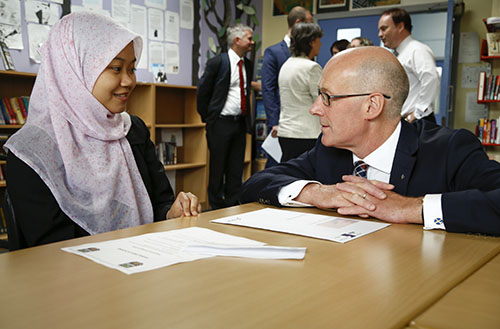
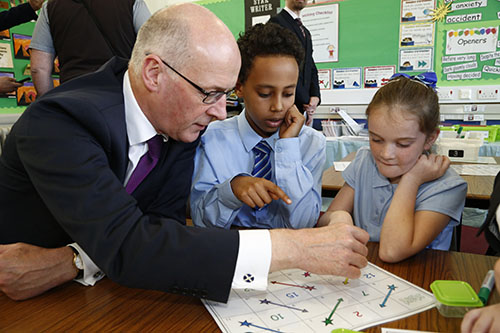
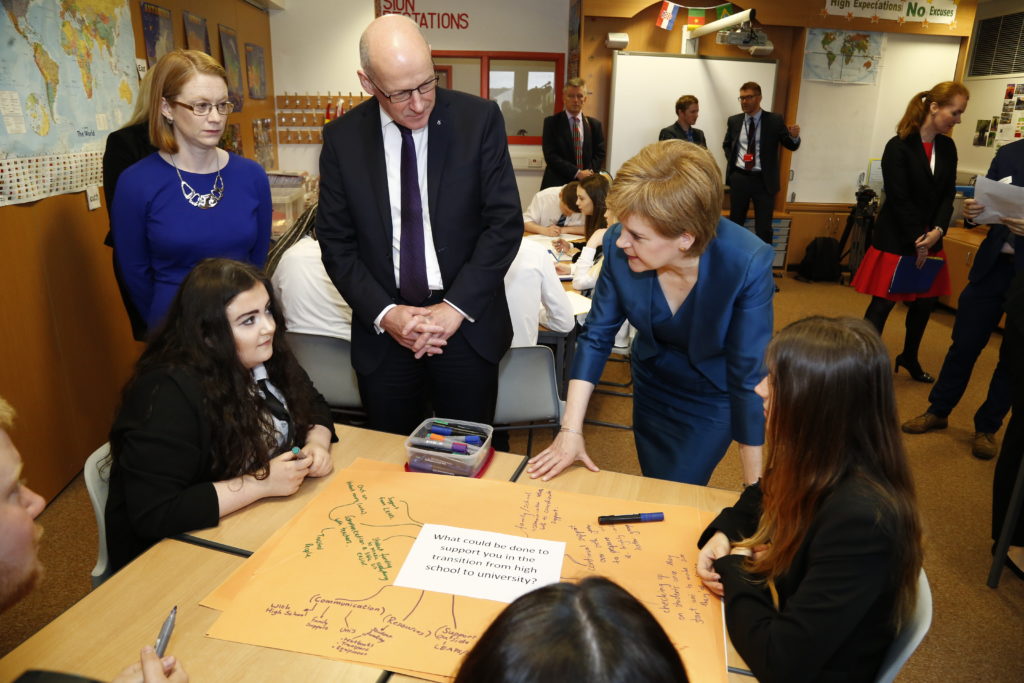
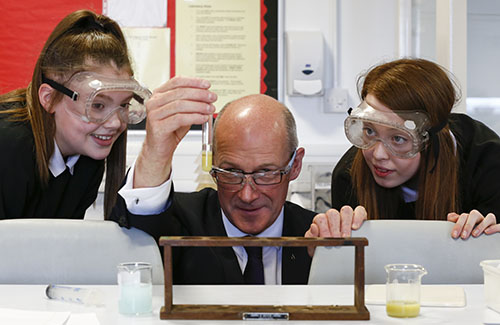
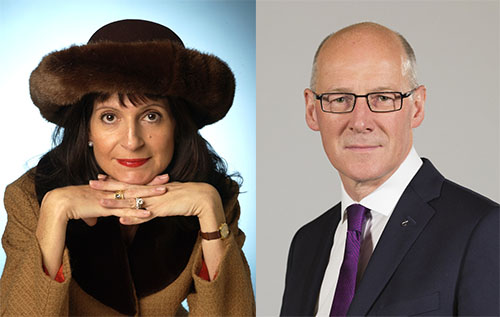
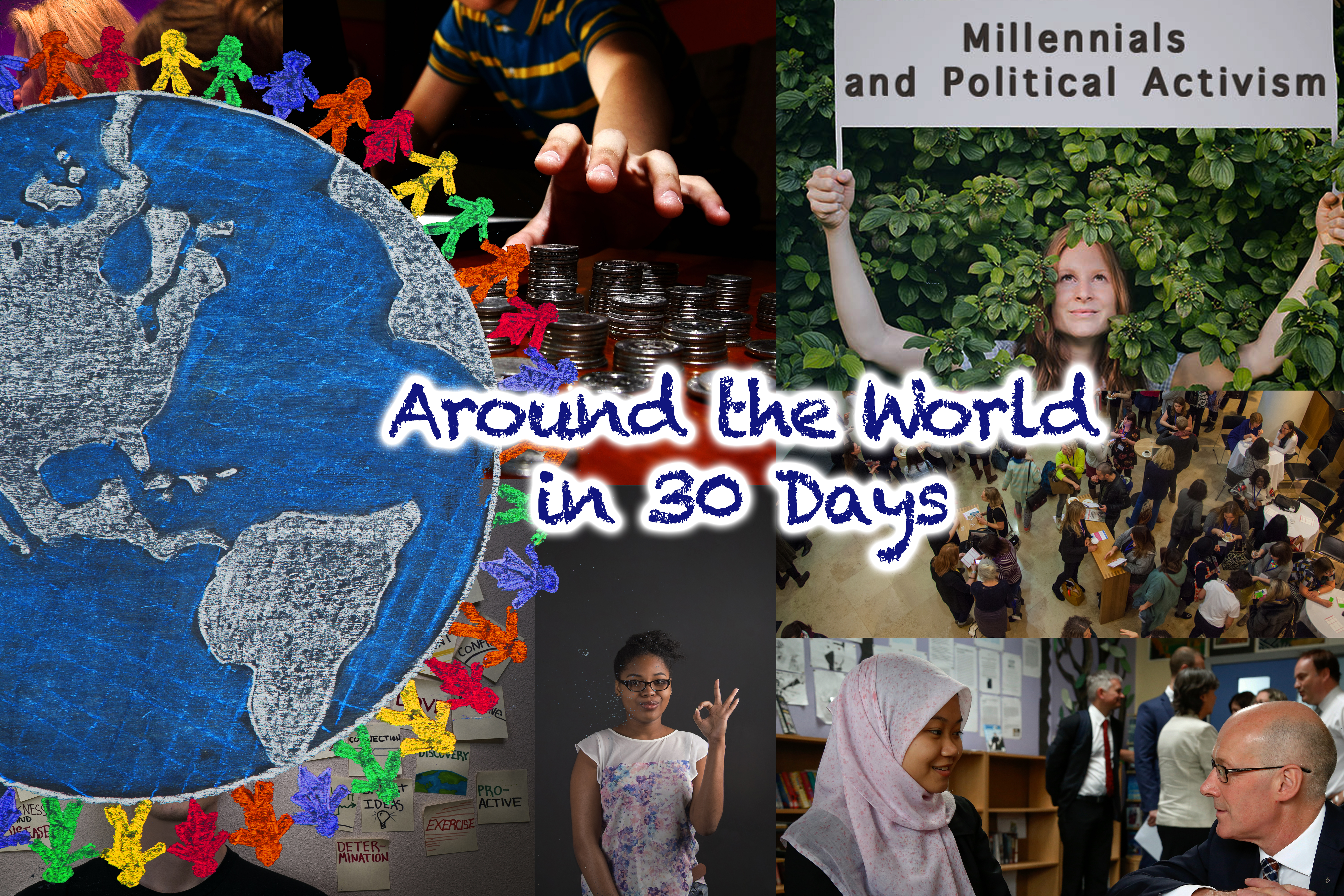
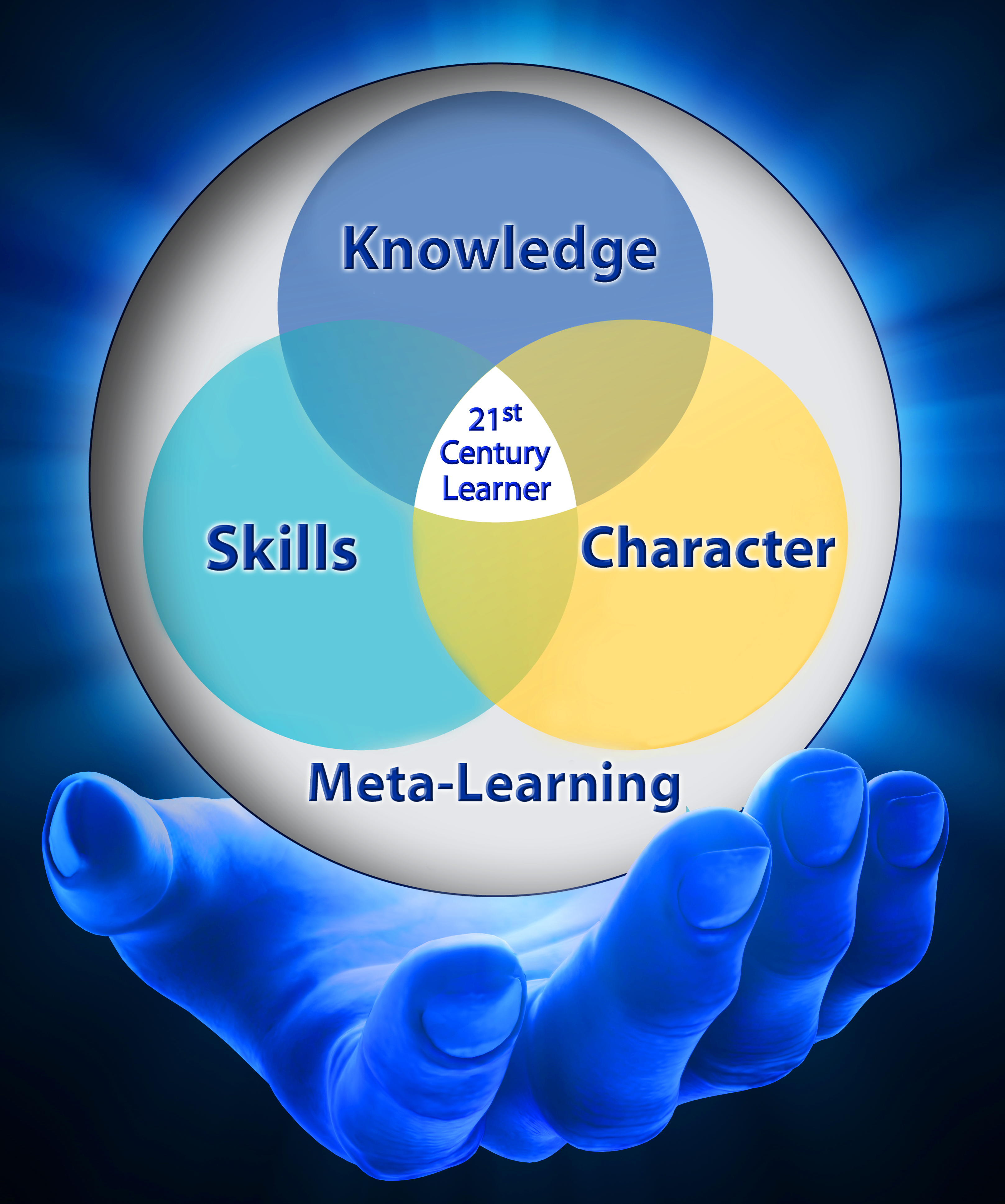


Recent Comments